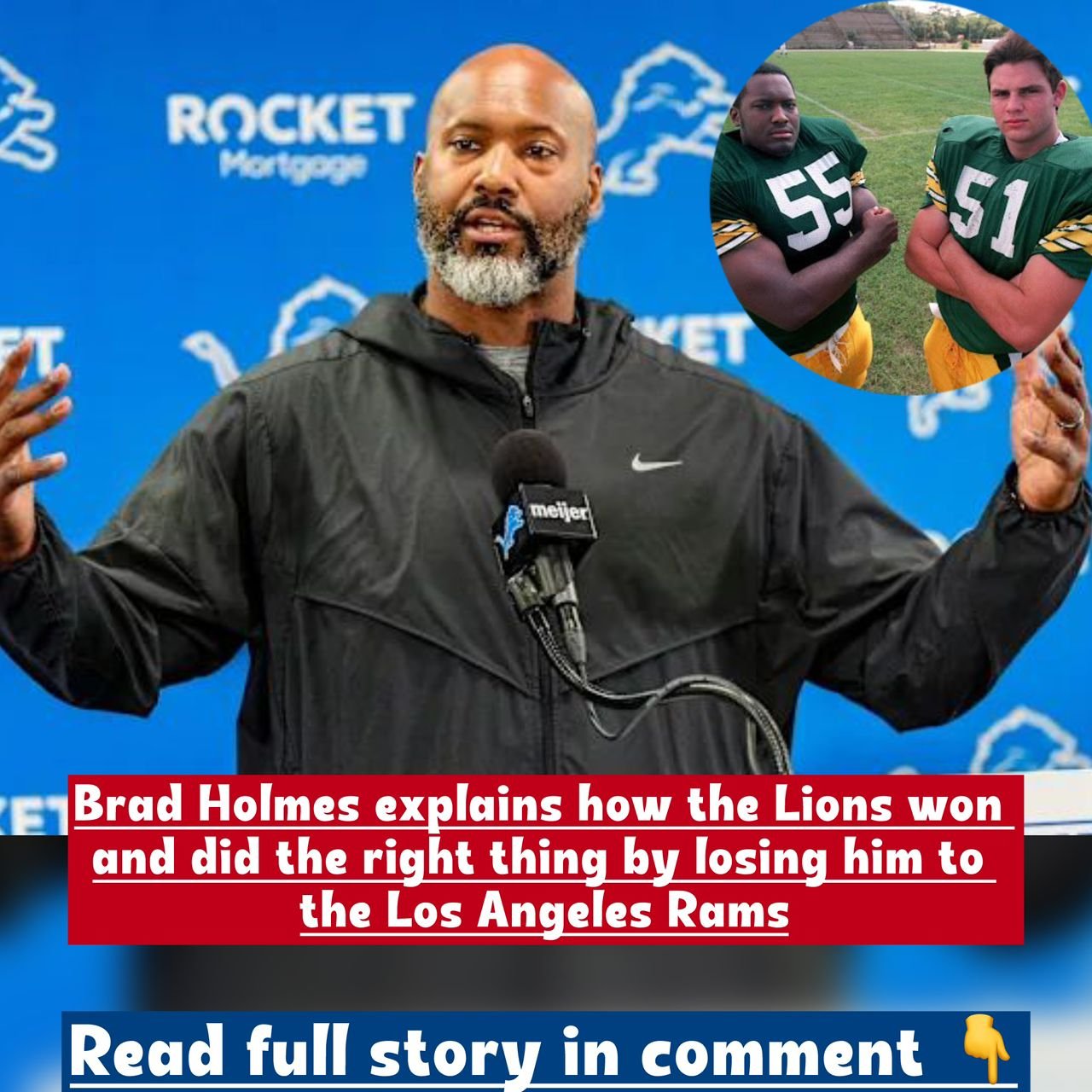The Lions had the opportunity to employ Brad Holmes, the future general manager, in 2003. What transpired, and how did the team allow him to escape their control?
Brad Holmes, the general manager of the Detroit Lions, is now widely recognised as one of the primary architects responsible for the team’s recent success. The Lions’ first trip to the NFC Championship Game in well over 30 years, as well as back-to-back division titles, have been the result of his ability to discover value deep in the draft and be aggressive in pursuing players who he and HC Dan Campbell consider to be true assets for the team.
Naturally, he began his career in a different capacity, dedicating nearly two decades to his advancement within the Los Angeles Rams organisation, first as a recruiter and subsequently as Director of College Scouting. However, had he made a different decision, the stability and development that he encountered while working within a single team for his entire career may not have occurred. He discussed the process that led to this decision during a recent interview with the Field Talk Podcast.

But prior to accepting the second apprenticeship, Holmes had received an offer from the Lions to serve as an intern. Before the Rams extended their offer, he had already accepted the Detroit position. He only came to the realisation that the Rams had a history of hiring their trainees onto their staff while reviewing the biographies of staff members on both teams. The Lions, in contrast, did not.
Matt Millen was the Lions’ head coach during this period. During his tenure, he compiled a roster that compiled an abysmal span of 31-81. He was hired in 2001 to serve as the team’s CEO and to assume the responsibilities of General Manager.
Consequently, Holmes would have been permitted to pursue his career in a different field after serving as a media/PR intern for a year at the most. It is highly probable that he would have had a minimal likelihood of securing another opportunity with the Rams, even if he had managed to remain in the league.
It is certain that he would not have acquired the same insights as those imparted by Rams executives, such as Les Snead, their current general manager, had he actually transitioned to a role as a recruiter for the Lions.
It is difficult to assert that Holmes’ career would have been adversely affected, to be fair. It is absolutely conceivable that he may have found success with a different team. Certainly, his intellect and drive were unquestionably at the forefront, as evidenced by his ability to leverage his PR internship into a scouting position. He may have been afforded opportunities to excel in other areas if another team had recognised those same attributes and talents.
Holmes even referenced that he had been permitted a video interview during the NFL Combine a few years prior, as part of a program to develop future head coaches and general managers, following a recommendation from Rams’ leadership.. He would later regard this interview as a failure, as he had anticipated a more business-oriented set of questions rather than the flurry of pure football-oriented enquiries that were presented to him.
Years later, Holmes was granted another opportunity to participate in the same interview program, and the Lions’ COO, Mike Disner, encountered the video during the team’s search for a general manager. Fortunately, Holmes was more experienced and prepared.
The chain of “what if” is invariably a precarious one; however, it is safe to assert that the Lions ultimately prevailed by forfeiting Holmes to the Rams more than two decades ago.
Leave a Reply